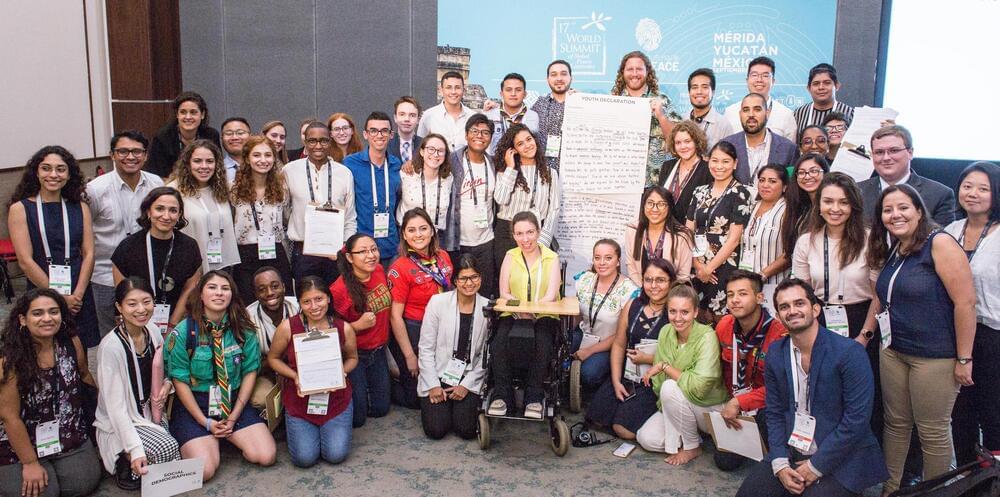I’ve been teaching English for 12 years, and I’m astounded by what ChatGPT can produce.


James Webb Telescope’s Latest Captures.
Welcome Back To Theory Of Science!
The James Webb Space Telescope is the largest, most powerful space telescope ever built. It will allow scientists to look at what our universe was like about 200 million years after the Big Bang. The telescope will be able to capture images of some of the first galaxies ever formed. It will also be able to observe objects in our solar system from Mars outward, look inside dust clouds to see where new stars and planets are forming and examine the atmospheres of planets orbiting other stars. The Webb telescope is as tall as a 3-story building and as long as a tennis court! It is so big that it has to fold origami-style to fit inside the rocket to launch. The telescope will unfold, sunshield first, once in space The James Webb Space Telescope sees the universe in light that is invisible to human eyes. This light is called infrared radiation, and we can feel it as heat. Firefighters use infrared cameras to see and rescue people through the smoke in a fire. The James Webb Space Telescope will use its infrared cameras to see through dust in our universe. Stars and planets form inside those dust clouds, so peeking inside could lead to exciting new discoveries! It will also be able to see objects (like the first galaxies) that are so far away that the expansion of the universe has made their light shift from visible to infrared! in this video, we are looking into James Webb Telescope’s Latest Captures.
TAGS: #jwst #nasa #JamesWebbTelescope.
RIGHT NOTICE: The Copyright Laws of the United States recognize a “fair use” of copyrighted content. Section 107 of the U.S. Copyright Act states: “Notwithstanding the provisions of sections 106 and 106A, the fair use of a copyrighted work, including such use by reproduction in copies or phonorecords or by any other means specified by that section, for purposes such as criticism, comment, news reporting, teaching (including multiple copies for classroom use), scholarship, or research, is not an infringement of copyright.” This video and our YouTube channel, in general, may contain certain copyrighted works that were not specifically authorized to be used by the copyright holder(s), but which we believe in good faith are protected by federal law and the fair use doctrine for one or more of the reasons noted above.
Humanity Augmented: https://youtu.be/Hc2FMNMPiNQ
Mankind has always looked for ways to reduce manual labor and repetitive tasks. To that end, and in the absence of technology, civilization exploited various me-thods, often by taking advantage of their fellow humans. Robots, as a potential solution, have long fascinated mankind, capturing our imagination for centuries. Even in Greek mythology, the god Hephaestus had « mechanical » servants. But not until recently, has artificial intelligence finally progressed to a level that will become more and more life-changing for the future of humanity.
▬▬▬▬▬▬▬▬▬
Subscribe Free Documentary Channel for free: https://bit.ly/2YJ4XzQ
Instagram: https://instagram.com/free.documentary/
Facebook: https://bit.ly/2QfRxbG
Twitter: https://bit.ly/2QlwRiI
▬▬▬▬▬▬▬▬▬
#FreeDocumentary #Documentary #Robotics.
▬▬▬▬▬▬▬▬▬
Free Documentary is dedicated to bringing high-class documentaries to you on YouTube for free. With the latest camera equipment used by well-known filmmakers working for famous production studios. You will see fascinating shots from the deep seas and up in the air, capturing great stories and pictures from everything our beautiful and interesting planet has to offer.
Enjoy stories about nature, wildlife, culture, people, history and more to come.
This week our guest is David Wood, a long-time futurist and renowned transhumanist thinker. David has authored 10 books on the subject of our technological future, including his recently published book Singularity Principles: Anticipating and Managing Cataclysmically Disruptive Technologies.
In addition to exploring some of the principles and ideas from David’s latest publication, this episode takes a wide but succinct tour of the singularity. This includes (but is certainly not limited to) the rise of artificial general intelligence, and whether we should merge with AI or if it will be a conscious entity separate from humans. We also discuss the variety of challenges that could push us towards a negative Singularity, as well as the many opportunities that could propel us toward an abundant and thriving future.
Find more of David’s work at deltawisdom.com or follow him at twitter.com/dw2.
Subscribe: http://bit.ly/1Wq6gwm.
Connect with Singularity University:
Website: http://su.org.
Blog: https://su.org/blog/
Hub: http://singularityhub.com.
Facebook: https://www.facebook.com/singularityu.
Twitter: https://twitter.com/singularityu.
Linkedin: https://www.linkedin.com/company/singularity-university.
About Singularity University:
The big bang is one of the most fascinating topics you can bring up when conversing with scientists and astronomers. This is because the theory talks about how the whole universe started in the first place. However, the event that led to the big bang is one thing that is being argued among scientists today.
For this reason, the James Webb Telescope was called in to make some findings about the big bang. The JWST found something quite alright, but it wasn’t something the scientist had prepared their minds for. What did the James Webb Telescope discover, and in what way would it affect the Big Bang Theory?
Join us as we explore the James Webb telescope’s terrifying discovery before the big bang.
It all began when an astronomer sighted a discovery made by the James Webb Telescope. Astronomer Rohan Naidu was at home with his girlfriend when he discovered the galaxy that almost broke cosmology. He was inspecting some of the images the James Webb Telescope sent earlier when one of the images caught his attention. The telescope had identified an object that Naidu recognized as mysteriously huge. It dates back to the big bang era, making it older than any galaxy we once knew in science. It was a shocking discovery for him, as he called his girlfriend to observe the most distant starlight too. He was praised for this discovery by his team, and then they got to work. A few days later, Naidu and his team published a paper on the discovered galaxy called “GLASS-z13.” It was a discovery that had the whole world of science come to a standstill, as no one expected such a discovery to be made by the James Webb Telescope.
The James Webb Telescope made this ancient galaxy discovery just a few weeks after it went into operation. It was a huge achievement because if such a discovery could be made a few weeks into the telescope’s launch, what next would it discover? The JWST, the most powerful telescope currently in use by scientists and astronomers and the Hubble Space Telescope’s successor, was built to make us understand our universe better, and it is already achieving that feat. The telescope is 1.5 million kilometers away from earthly interference, where it orbits the sun. It is equipped with a sunshade about the size of a tennis court, with huge segmented mirrors and very sensitive tools designed to detect details about the universe and its entirety that have never been explored.
Disclaimer Fair Use:

Recently, I learned about the World Nobel Peace Summit — fascinating. Young people can go there, mingle with Nobel Peace Laureates, network and share ideas.
Amma introduces the concept of two types of education: one that allows you to earn a living and another to attain a happy, fulfilled life. Modern education should focus on not just academic skills but a culture of human rights and peaceful coexistence of peoples, the ethics of non-violence. Too often, education is propelled by vanity and the desire for individual success. Over and over, it is just competition, pressure, and a vast amount of information pumped into one’s head without instilling the habit of exploring the future consequences of one’s actions. Imagine a good physics student who becomes a scientist just to invent a bomb that could destroy the whole world. We want a child to fulfill their potential — but stay aware of the outcomes of their choices at individual and societal levels. Ethics allows one to maintain this balance. As a society, we may want to establish ethical think tanks that simulate the future and guide us as we develop new technologies and community practices.
JB: Should the ways of peaceful coexistence be taught starting from pre-school age and reinforced over the years?
EG: Education is a good starting point, but everyday practice is of utmost importance. It is essential to talk to a child or teenager about ethics, culture, the evolution of ideas, about the fact that we are all one — but also give that person a lot of real-life experience in conflict resolution and the opportunity to reflect on it. We cannot shield our youth from risks, conflicts, and frustrations and hope they will be able to deal with such challenges in adulthood. Instead, we need to let young people dive into these issues early on — but provide them with support, guidance, and wisdom along the way.

“Our goals were to explore the new sound world created by using new materials”
Only musicians can understand how grueling and challenging it is to play the violin. Violins, even mediocre ones, are worth thousands of dollars. Good news for music students and beginners, they will meet with low-cost and durable 3D-printed violins thanks to The Acoustical Society of America’s AVIVA Young Artists Program.
As stated in the release, today in Nashville, Mary-Elizabeth Brown, director of the AVIVA Young Artists Program discussed the steps taken and the lessons learned in her presentation, Old meets new: 3D printing and the art of violin-making.
Shawn Peters.
The team’s inspiration roots in multiple places, said Brown. Our goals were to explore the new sound world created by using new materials, to leverage the new technology being used in other disciplines, and to make music education sustainable and accessible through the printing of more durable instruments.

Why is consciousness so contentious? Neuroscience can increasingly explain many facets of consciousness, but what about conscious awareness itself? Some philosophers claim that although facets of consciousness—such as how we see edges or colors—can be explained, we have no possibility of explaining, in purely physical terms, the experience of consciousness.
Free access to Closer to Truth’s library of 5,000 videos: http://bit.ly/376lkKN
Watch more interviews on consciousness: https://bit.ly/3yNzS0I
Tim Bayne received his undergraduate education from the University of Otago, New Zealand, and his graduate education at the University of Arizona. He taught at Macquarie University, Sydney from 2003 until 2006, and at the University of Oxford from 2007 until 2012.
Register for free at CTT.com for subscriber-only exclusives: http://bit.ly/2GXmFsP
Closer to Truth, hosted by Robert Lawrence Kuhn and directed by Peter Getzels, presents the world’s greatest thinkers exploring humanity’s deepest questions. Discover fundamental issues of existence. Engage new and diverse ways of thinking. Appreciate intense debates. Share your own opinions. Seek your own answers.

A new study led by UCL researchers has identified patterns in how common health conditions occur together in the same individuals, using data from 4 million patients in England.
With advancing age, millions of people live with multiple conditions—sometimes referred to as multimorbidity—and the proportion of people affected in this way is expected to rise over the next decades. However, medical education and training, health care delivery, clinical guidelines and research have evolved to focus on one disease at a time.
The Academy of Medical Sciences and the UK Chief Medical Officer (CMO) have recognized this problem and set out a challenge of investigating which diseases co-occur in the same individuals and why.